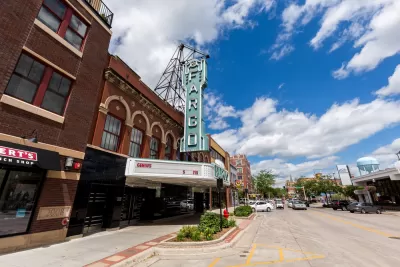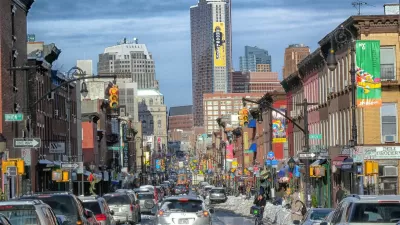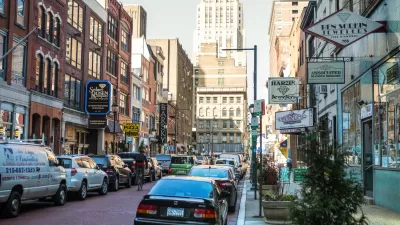A law making its way through the North Dakota Legislative Assembly would challenge a prevailing assumption in the state that free parking is a human right.

"Finding a place to park in North Dakota usually isn’t a big problem. With fewer than 10 residents per square mile, the state is famous for its emptiness," writes James Hagerty. But wait, there's a twist: "Yet lawmakers here are thinking about bringing back parking meters—which have been banned from the streets for 68 years and are still widely regarded with hostility."
In evidence of the state's resistance to parking meters, Hagerty quotes Mike Jacobs, a "retired newspaper editor who lives in North Dakota. "Free parking 'is pretty much regarded as a basic human right,'" explains Jacobs.
And yet…the North Dakota State Senate recently approved a bill that would allow parking meters to return to the streets of North Dakota, and the state's House of Representatives is expected to take up the matter this week. The bill also has local support, according to Hagerty: "The mayors of Fargo and several of the state’s other towns support ending the ban. They believe it would help free up spaces now hogged by downtown workers so that parking would be easier for people going to shops and restaurants." Local leaders also cite local control as a motivating factor behind their support for the bill.
The article includes a history of the state's parking meter ban, and also finds a recent example of a local jurisdiction that approved a similar ban—the city of Biddeford, in Maine.
[The Wall Street Journal article might be behind a paywall for some readers.]

Alabama: Trump Terminates Settlements for Black Communities Harmed By Raw Sewage
Trump deemed the landmark civil rights agreement “illegal DEI and environmental justice policy.”

Planetizen Federal Action Tracker
A weekly monitor of how Trump’s orders and actions are impacting planners and planning in America.

The 120 Year Old Tiny Home Villages That Sheltered San Francisco’s Earthquake Refugees
More than a century ago, San Francisco mobilized to house thousands of residents displaced by the 1906 earthquake. Could their strategy offer a model for the present?

In Both Crashes and Crime, Public Transportation is Far Safer than Driving
Contrary to popular assumptions, public transportation has far lower crash and crime rates than automobile travel. For safer communities, improve and encourage transit travel.

Report: Zoning Reforms Should Complement Nashville’s Ambitious Transit Plan
Without reform, restrictive zoning codes will limit the impact of the city’s planned transit expansion and could exclude some of the residents who depend on transit the most.

Judge Orders Release of Frozen IRA, IIJA Funding
The decision is a victory for environmental groups who charged that freezing funds for critical infrastructure and disaster response programs caused “real and irreparable harm” to communities.
Urban Design for Planners 1: Software Tools
This six-course series explores essential urban design concepts using open source software and equips planners with the tools they need to participate fully in the urban design process.
Planning for Universal Design
Learn the tools for implementing Universal Design in planning regulations.
Clanton & Associates, Inc.
Jessamine County Fiscal Court
Institute for Housing and Urban Development Studies (IHS)
City of Grandview
Harvard GSD Executive Education
Toledo-Lucas County Plan Commissions
Salt Lake City
NYU Wagner Graduate School of Public Service





























